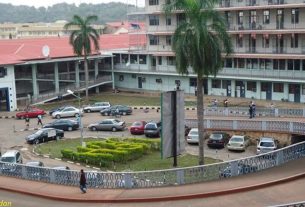
By Kola Keshinro
Community Health is one of the efforts of the society to protect, promote and restore people\’s health. It is the combination of science, skills and beliefs directed towards the maintenance of the health of the whole population through collective social actions.
The programmes, services and institutions involved in Community Health projects emphasize the prevention of diseases and meeting the health needs of the population, as a whole community may be discussed at three overlapping levels namely:
Primary Health Care
Secondary Health Care
Tertiary Health Care
Success of Community Health programmes rely upon the transfer of information to the general public using unilateral or mass communication techniques.
Common Community Health problems are caused by pollution namely:
Air Pollution
Water Pollution
Soil Pollution
Noise Pollution
Improper Disposal of Human Excreta and Sewage
Problems Related to Poor Food Sanitation
To stem the tide of Community Health epidemics in Sub-Sahara Africa, there is need to combat pollution, poor food handlers’ ethics, pest, rodents and vermin in the society. Alcohol and substances abuse also compound Community Health problems.
Unsanitary municipal refuse disposal in Ipetu-Ijesa, Nigeria is an example of Community Health challenges in Sub-Sahara Africa.
A panoramic survey of Ipetu-Ijesa now and as it had been since 2013 reveals a state of Osun town, Nigeria bedeviled with gutters, streets and market places messed up with refuse.
Ipetu-Ijesa youths do you like to see this mountain of refuse in your town?
Here and there in Ipetu-Ijesa town, mountainS of refuse which form reservoir of diseases can be found. Analysis of municipal refuse in Ipetu-Ijesa shows that the refuse consist of plastic, nylon paper wastes, cardboards, old baskets, rags, garbage, tins, bottles and children excreta.
Ipetu-Ijesa Town deserves to become an open defecation free (ODF) community, and a community free from refuse, as the town ushers in her new King, Oba Pastor Adeleke Oke – Agunbiade, the Ajalaye of Ipetu Ijesa.
The degenerate state of municipal sanitation in Ipetu-Ijesa calls for the establishment of a Network for the Development of Community Health (NDCH).
One of the functions of the NCDH will be to combat refuse dumping in Ipetu-Ijesa town and its environ.
Municipal refuse should be disposed at the site of production by those who produce them (in situ municipal refuse disposal). This model should be adopted by other towns in Nigeria and Sub-Sahara Africa.
Ebola Virus Diseases in Democratic Republic of Congo: Ministry of Health, Democratic Republic of Congo declared an outbreak of Ebola Virus Disease (EVD) on 8 May 2018.
This is the ninth EVD outbreak in the country over the last forty years.
The current EVD outbreak in DR. Congo should be a signal to every community in Sub-Sahara Africa, especially Nigeria, to carry out Ebola prevention campaign.
Ipetu-Ijesa KIngdom in Osun State, is particularly at risk because of the many rivers that are defiled and also the surrounding jungles. There are irate fruits bats around. The bats should be combatted, Bat is the primary vector of Ebola.
All hands must be on deck to keep Ipetu-Ijesa clean.
The Christian era dawns in Ipetu-Ijesa. May it be Community Health promotion era.
To develop a Network for Development of Community Health (NDCH) in Sub-Sahara Africa is a task that must be done!
– Caption: Oba Adeleke Agunbiade, Ajalaye of Ipetu-Ijesa
Kola Keshinro is a Professor of Health Science Education
(Epidemiology/Tropical Diseases Control)
at the British American University, BAU Africa)
G.S.M 09032084973
Email: Sundykesh2018@yahoo.com





